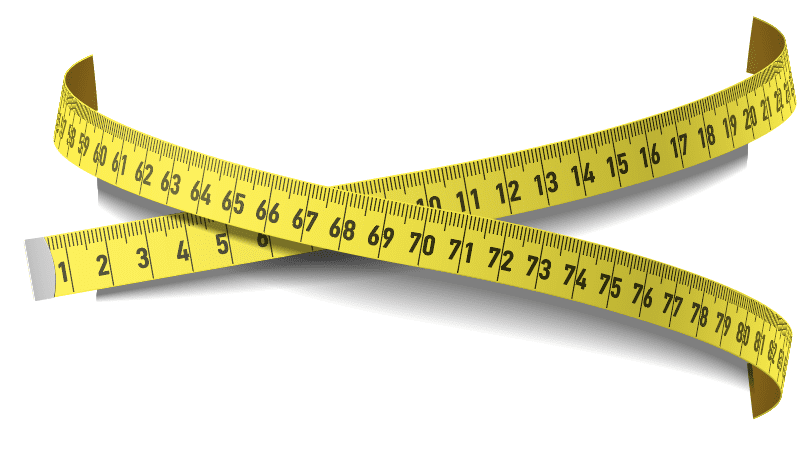Get Moving
Once you’ve decided to commit to a new exercise routine or just healthier choices across the board, you don’t want to lose momentum. It’s important to plan ways to stay motivated.
John Jackson, personal trainer and owner of Impact Fitness in Tulsa, says your fitness, nutrition and health should be a lifestyle – and not just a block of time each day or week. Instead, consider the many ways you can keep moving in your daily life.
If you like social activities, he says to look for ways to exercise with others: grab friends to play tennis or join a running club. If you prefer a more tailored approach, consider hiring a trainer for a personalized program. Ultimately, it’s all about staying active.
“Resistance training, total body aerobic activity, Pilates or even a consistent dog walk can increase your heart rate,” he says. “This will increase lean muscle mass and help stabilize your musculoskeletal system. Start moving your body a few minutes a day and increase every workout. Ultimately, you will look and feel better, and moreover, improve your sleep patterns to give you energy for your day.”
And the effects of movement impact more than your body.
“The mental, physical and spiritual focus helps create balance in all aspects of life,” he says. “I often take time for a prayer before diving into my day. Your ability to focus will enhance your workouts and significantly help you attain fitness goals.”
Healthy Weight Loss in the New Year
Living healthier and losing weight are often top New Year’s resolutions. January is meant to feel like a fresh start, but changing habits can be hard.
Melody Hawkins, chief financial officer of BA Med Spa and Weight Loss Center, recommends beginning with realistic and achievable goals that you can do every day.
“Oftentimes, weight loss journeys stop too soon because people try to change their entire way of eating and lifestyle overnight,” she says. “So make small goals, stick to them, and as they become habits, slowly incorporate new goals.
“Also, give yourself some grace and celebrate the little victories each day. If you did not make it to the gym, but parked far away from the office and took the stairs … or if you vacuumed your whole house while wearing ankle weights, that is a victory, too. Weight loss is a process, and the goal is to make a diet a lifestyle so that you no longer have to ‘diet.’”
She says simple steps to get started could include increasing your water intake to a gallon each day the first week or limiting fast food to once a week if you typically eat it often.
However, despite the best of plans, Hawkins says that one of the biggest obstacles the professionals at BA Med Spa and Weight Loss Center see is people feeling defeated before they even get started. She says that’s why they offer weight loss assistance through the combination of a coach with clinical expertise in weight loss, along with a physician who can design a personalized plan to begin the weight loss journey.
“Also, we often hear that weight loss is so hard because people are often doing it alone in their homes,” she says. “Weight loss works best when it’s a full-family change, or if you have a partner. But that often is not the case. We love having dedicated weight loss specialists who coach our patients every single week during a complimentary office visit. Over the past 45 years that our physician has been practicing weight loss, we have found that having an accountable partner who is also certified in the area is invaluable.”
Beating Post-Holiday Blues
At the start of a new year, many people may feel a sense of sadness or extra loneliness – a bit of post-holiday blues.
Ginny Salach, LCSW, a therapist with Laureate Psychiatric Clinic and Hospital, part of the Saint Francis Health System in Tulsa, explains that we can experience these low spirits because we miss all of the special moments of the season: the food, traditions, activities and anticipation that come with celebrating with family and friends.
“When the holidays are over, there is a loss of all that stimulation,” she says. “The tree is put up, decorations and lights are put away and we go back to our daily routines. This lack of stimulation can cause a big let down and sadness.”
To help work through those feelings, it can be good to shift your focus.
“Get back to your hobbies or find a new hobby,” says Salach. “Watch your favorite TV show or movie – something uplifting, happy or funny, and/or plan something you want to do in the new year. Having something to look forward to gives us hope and helps us move forward.”
However, if you have a friend or loved one who seems to be depressed or especially struggling after the holidays, Salach suggests starting a conversation.
“Use open ended questions to see if they are aware of how they are feeling and if they are willing to talk,” she says. “If they are willing to talk about it, then continue the conversation. Sometimes people just need to talk and have someone listen.
“If they don’t want to talk, then emphasize that you care about them and want to help. Encourage them to talk to someone or seek professional help, i.e. a doctor or therapist, and be sure to check back to see how they are doing.”
Diet Culture
The term ‘diet culture’ is a trending topic that’s sparking discussion and encouraging change. While explanations and interpretations may vary, diet culture is most often considered society’s belief that thin is ‘ideal’ and points to a higher social status or moral goodness. In short, diet culture says foods are good or bad, and only a thin body is a healthy body.
“Ultimately, diet culture is harmful,” says Jenny Lange, a registered dietitian nutritionist with Norman Regional Health System. “We are not all meant to be the same size or eat the same diet. That’s just not how it works. Diet culture capitalizes on our insecurities and profits on them.”
She says the reason diet culture is so popular is because it provides black and white information.
“The gray area, where the majority of good nutrition advice lies, isn’t popular,” says Lange. “You don’t see very many popular influencers who make a lazy dinner with microwaved canned vegetables, a sandwich and ice cream. The realistic dinners and lunches don’t get views, and don’t portray a perfect image.”
Laure DeMattia, D.O., an obesity and family medicine physician specializing in medical weight management with Norman Regional Health System’s Journey Clinic, says diet culture is not only harmful but it often backfires, especially for women, because it’s based on shame and comparison.
“I tell my patients that body image is a slippery slope that needs our attention,” says DeMattia. “Patients will tell me, ‘I’ll be happy when I lose 20 more pounds,’ but I want people to be happy whatever their weight is. I want people to have a more peaceful relationship with their body. It’s a work of art.”
Courtney Lundy, a registered dietitian with the Journey Clinic, believes diet culture’s focus on outward appearances, rather than health and wellness, leads to disappointment – and can potentially increase health risk factors.
“There are plenty of thin people that are unhealthy, so the idea that thin equals healthy can be dangerous,” she says. “Unrealistic body standards can also be taxing on mental health and lead to disordered eating. Motivation behind the desire to be thin is important as well. If the motivation is focused on outward appearance – to look good, to impress or please someone else, to be a certain size, or to wear certain clothing – that is fleeting. However, if the motivation is focused on quality of life or inward feelings – to be able to ride a roller coaster with your child/grandchild, to be able to tie your own shoes, to reduce medication use, or to prevent chronic disease – that is lasting. The desire to lose weight is not all bad, if health is being considered.”
Lundy points out that obesity is a growing concern, and Oklahoma currently ranks fourth worst in obesity for the U.S., with 36.8% of adults in the state being obese.
“Obesity has been shown to increase the risk for heart disease, diabetes, stroke, gallbladder disease, osteoarthritis, hypertension, sleep apnea and several types of cancer,” she says. “Getting to a healthy BMI can drastically reduce those risks. However, a healthy BMI is not always viewed as thin or skinny. Diet culture is harmful because it is creating a weight-obsessed society, rather than a society focused on health and wellbeing.”



























